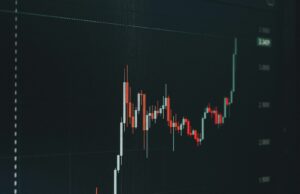In the vast and intricate landscape of digital assets, where the flicker of screens illuminates the shadows of uncertainty, artificial intelligence (AI) emerges as a sentinel–a guardian of both bytes and bits. The impact of AI on cybersecurity transcends mere programming; it embodies a profound evolution in our approach to protection against the unseen threats that lurk in the corridors of cyberspace. As we navigate this digital frontier, the role of intelligence’s contribution becomes ever more significant, guiding us toward a future where defense mechanisms are not only reactive but also preemptive.
At the heart of this transformation lies a delicate balance between innovation and vigilance. AI’s ability to analyze vast amounts of data in real-time provides an unprecedented edge in identifying vulnerabilities before they can be exploited. The synergy of human insight and artificial intelligence creates a formidable force against cyber threats, enhancing our capability to safeguard sensitive information and critical infrastructure. The contribution of AI to cyber defense is not merely a tool in our arsenal; it represents a paradigm shift in how we conceptualize security in an increasingly interconnected world.
In this exploration of AI’s role in protecting digital assets, we must consider the multifaceted dimensions of its application–from predictive analytics that foresee potential breaches to adaptive systems that learn from each encounter with malicious entities. The dialogue surrounding artificial intelligence and cybersecurity is not just about technology; it is about trust, resilience, and the fundamental right to operate freely within the digital realm. As we dissect these themes, we will uncover how AI’s intelligence fortifies our defenses, ensuring that the guardianship over our digital existence remains steadfast amidst the volatility of cyber threats.
The Role of Artificial Intelligence in Cybersecurity
In the vast and ever-expanding landscape of digital assets, the contribution of artificial intelligence (AI) to cybersecurity cannot be overstated. As the world shifts towards an increasingly interconnected existence, the necessity for robust protection mechanisms has become paramount. The intelligence’s ability to analyze vast amounts of data in real time positions AI as a formidable ally in the ongoing battle against cyber threats. This emerging technology does not merely react; it learns, adapts, and evolves–traits that are essential in a domain where the adversaries are often one step ahead.
AI’s role in protecting digital assets goes beyond mere surveillance; it embodies a proactive stance in cyber defense. By employing advanced algorithms, AI can detect anomalies and patterns that elude traditional methods of security. This vigilance enables organizations to identify vulnerabilities before they are exploited, thus fortifying their defenses. The impact of such preemptive measures is profound, as it reduces the potential for devastating breaches that could compromise sensitive information and financial resources.
Furthermore, artificial intelligence contributes significantly to the automation of security processes. In a world inundated with data, manual monitoring becomes an untenable endeavor. AI systems can sift through mountains of information with remarkable speed and precision, providing insights that inform strategic decisions regarding asset protection. This not only enhances efficiency but also allows human analysts to focus on more complex issues that require nuanced understanding–a testament to the collaborative nature of AI in cybersecurity.
The integration of AI into cyber defense strategies redefines our approach to protecting assets in an era characterized by escalating threats. With each passing day, cybercriminals refine their tactics, pushing the boundaries of conventional security measures. In response, the development of intelligent systems capable of anticipating and neutralizing these threats represents a critical evolution in how we conceptualize cybersecurity. The continuous investment in AI technologies signals a commitment to safeguarding our digital future.
Ultimately, the impact of artificial intelligence on cybersecurity is both profound and multifaceted. It embodies a shift from reactive measures to proactive strategies aimed at preserving the integrity of our digital lives. As we navigate this complex terrain, it is imperative to recognize AI not merely as a tool but as a vital partner in our quest for security–an unwavering sentinel standing guard over our most valuable assets against the relentless tide of cyber threats.
The Role of Artificial Intelligence in Cybersecurity
In the vast landscape of digital existence, the protection of assets has become a paramount concern. Artificial intelligence, with its remarkable capacity for learning and adaptation, plays a vital role in enhancing threat detection. Through sophisticated algorithms that analyze patterns and behaviors, AI unveils the hidden threats lurking within the shadows of cyberspace. This intelligence’s contribution is not merely technical; it embodies a transformative force that reshapes our approach to cybersecurity, allowing us to foresee attacks before they manifest.
The impact of AI on cyber defense extends beyond mere prevention; it fosters a proactive mindset within organizations. By harnessing artificial intelligence, defenders can create dynamic security frameworks that learn from each encounter with malicious actors. This ongoing education of AI systems facilitates an environment where defenses are not static but evolve in response to emerging threats. Such adaptability ensures that protection mechanisms remain robust against the ever-changing tactics employed by cybercriminals.
As we delve deeper into the realm of digital assets, it becomes evident that AI’s role is indispensable. Each piece of data holds inherent value, and safeguarding this wealth requires more than traditional methods. The integration of artificial intelligence allows for real-time monitoring and analysis, enabling swift responses to potential breaches. In a world where every click may lead to vulnerability, AI stands as a sentinel, guarding against incursions that threaten the integrity of our digital lives.
Ultimately, the journey toward fortified cybersecurity must acknowledge AI’s profound influence. Its ability to process vast amounts of information with unparalleled speed empowers us to protect what we hold dear in the digital domain. As we explore the intricate dance between technology and threat, let us embrace the contributions of artificial intelligence in our quest for safety. In this union lies a promise: a future where intelligence serves not only as a tool but as a guardian of our most cherished assets.
The Role of Artificial Intelligence in Cybersecurity
In the quiet hum of a digital world, where bytes and bits flow like rivers through unseen valleys, artificial intelligence emerges as a guardian. Its role in cybersecurity is not merely auxiliary; it is pivotal. With every passing day, the landscape of cyber threats morphs into a more complex tapestry, woven with threads of deception and malice. Here, AI stands firm, a sentry equipped with the intelligence to respond swiftly and decisively to incidents that threaten our digital assets.
AI-powered incident response solutions have begun to redefine the parameters of protection. They sift through mountains of data with an ease that eludes the human eye, identifying patterns and anomalies that signal impending breaches. This contribution to cyber defense is profound; it transforms the once-reactive nature of cybersecurity into a proactive strategy. By anticipating attacks before they unfold, AI not only fortifies the barriers around our assets but also instills a sense of confidence among those who traverse this intricate digital realm.
The impact of AI on cybersecurity transcends mere automation; it embodies a partnership between man and machine. Here lies the beauty of artificial intelligence: its ability to learn and adapt, evolving alongside the tactics employed by cyber adversaries. As these threats grow in sophistication, so too must our defenses. AI’s role in protecting digital assets becomes a dance–a delicate interplay where intelligence informs strategy and strategy fuels resilience.
Furthermore, as organizations increasingly rely on digital infrastructure, the stakes rise considerably. The protection of sensitive information demands not just vigilance but an arsenal equipped with cutting-edge technology. In this arena, AI’s contribution is invaluable. It equips cybersecurity teams with tools that enhance their capabilities, allowing them to focus on strategic decision-making instead of being mired in the minutiae of threat detection.
Yet, amid this technological renaissance, we must remain vigilant against over-reliance on artificial intelligence. While it offers remarkable attributes in terms of speed and accuracy, the human element remains irreplaceable. Cybersecurity is as much about understanding human behavior and intentions as it is about algorithms and data analysis. The true strength lies in harmonizing AI’s efficiency with human insight–a symbiotic relationship that can navigate the labyrinthine corridors of cyber threats.
In conclusion, as we stand at this pivotal juncture in our digital evolution, we must embrace the transformative power of artificial intelligence in cybersecurity. Its role is not merely that of a tool but rather as a cornerstone of our defense strategy–a protector of our most valuable assets. The journey ahead will undoubtedly be fraught with challenges, yet with AI as our ally, we can traverse these treacherous waters with greater assurance and foresight.
The Role of Artificial Intelligence in Cybersecurity
In the ever-evolving landscape of cybersecurity, the challenges posed by artificial intelligence are both profound and multifaceted. As organizations increasingly rely on digital assets, the need for robust protection mechanisms becomes paramount. However, AI’s role in this sphere is not merely that of a guardian; it is also a double-edged sword. The very technologies designed to bolster our defenses can be weaponized against us, creating an arms race of sorts between cybercriminals and those tasked with safeguarding our digital frontiers.
The impact of AI on cybersecurity extends beyond mere efficiency. It introduces a paradigm shift in how threats are identified and mitigated. Traditional methods often succumb to the sheer volume of data that needs to be analyzed; however, AI’s capability to process information rapidly transforms this narrative. Yet, as with any tool, there lies an inherent risk. Over-reliance on artificial intelligence may lead to complacency among human operators, resulting in vulnerabilities that adversaries could exploit.
Yet, amidst these challenges, artificial intelligence makes significant contributions to cyber defense strategies. By employing machine learning algorithms, organizations can detect anomalies and potential breaches with an accuracy that surpasses human capabilities. This proactive stance allows firms to respond to threats before they materialize fully. Still, it is crucial to remember that AI’s effectiveness hinges on the quality of the data fed into its systems; garbage in often translates to garbage out.
AI’s role in protecting digital assets cannot be overstated. As financial analysts and cryptocurrency specialists examine the nuances of blockchain technology, it becomes evident that these assets require specialized security measures. AI can enhance this protection by predicting market trends and identifying fraudulent activities in real-time. This blend of agility and foresight empowers organizations to safeguard their investments while navigating the complexities of an increasingly digital economy.
However, as we delve deeper into this intricate web of artificial intelligence and cybersecurity, we must remain vigilant about the ethical implications at play. The deployment of AI tools raises questions about privacy and consent–the very fabric of our digital lives. Balancing security interests with individual rights is essential if we are to harness AI’s full potential without compromising our fundamental liberties.
In conclusion, the interplay between artificial intelligence and cybersecurity presents a rich tapestry of opportunities and challenges. As we forge ahead into this new era, the responsibility lies not only on technologists but also on policymakers and society as a whole. Embracing AI’s contributions while remaining cognizant of its pitfalls will ultimately shape the future of how we protect our digital assets and defend against the ever-present threats lurking in cyberspace.
The Role of Artificial Intelligence in Cybersecurity: A Future Perspective
As we stand on the precipice of a new era, the interweaving of artificial intelligence and cybersecurity heralds a profound transformation in how we protect our digital assets. The impact of AI on this landscape cannot be overstated; it serves not merely as a tool but as a cornerstone in the defense against the ever-evolving threats that loom over our interconnected world. With each passing day, AI’s role in cybersecurity grows more prominent, guiding us toward innovative strategies for safeguarding our information and ensuring the integrity of our systems.
The contribution of artificial intelligence to cyber defense is marked by its ability to analyze vast amounts of data with unparalleled precision and speed. This intelligence provides a robust protection mechanism, identifying vulnerabilities before they can be exploited, thus fortifying our defenses. As cyber threats become more sophisticated, so too must our approaches to preventing them. In this intricate dance of technology and security, AI emerges as an essential ally, imbuing our efforts with a sense of urgency and purpose.
Conclusion
In conclusion, the future trends in AI security paint a hopeful picture for those who cherish the safety of their digital landscapes. The interplay between artificial intelligence and cybersecurity promises to redefine the roles we play in protecting our assets. Through continued innovation and collaboration, we can harness intelligence’s potential to strengthen our defenses against cyber threats.
- Acknowledgment of AI’s Role: Understanding AI’s integral role in cybersecurity is crucial for enhancing protection strategies.
- Impact on Digital Assets: The ongoing evolution of AI will significantly improve our capacity to defend digital assets from emerging threats.
- Continual Learning: As AI systems learn and adapt, they will increasingly contribute to proactive measures in cyber defense.
The journey ahead is one filled with promise, as we embrace the capabilities of artificial intelligence to navigate the complexities of cybersecurity. By recognizing its vital contribution and fostering an environment where innovation thrives, we lay down a path toward a safer digital future–one where intelligence serves as both shield and sword in the relentless fight for security.














